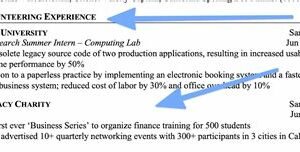Table of Contents
Explore the benefits of volunteer mentor programs and make a positive impact on someone’s life. Gain valuable experience, develop leadership skills, and contribute to personal and professional growth. Join a mentorship program today and help shape the future of aspiring individuals.
Volunteer Mentor Programs offer a unique opportunity for individuals to make a lasting impact in their communities. With the power of mentorship, volunteers have the ability to shape young minds, provide guidance, and ignite a sense of purpose in those they mentor. Moreover, these programs not only benefit the mentees but also the mentors themselves, as they gain valuable skills and experiences that enhance their personal and professional growth. By participating in a Volunteer Mentor Program, individuals can contribute to the betterment of society while simultaneously developing their own potential.
The Importance of Volunteer Mentor Programs
In today’s fast-paced and competitive world, mentorship has become increasingly essential for personal and professional growth. Volunteer mentor programs play a crucial role in connecting individuals seeking guidance with experienced mentors who can provide support, advice, and knowledge. These programs create opportunities for mentorship that can have a lasting impact on both mentees and mentors.
Benefits for Mentees
Mentees, or those seeking guidance, benefit greatly from volunteer mentor programs. Through these programs, they gain access to experienced professionals who can offer valuable insights into their respective fields. Mentees can learn from their mentors’ experiences, gain industry-specific knowledge, and receive guidance on navigating career challenges. Additionally, mentorship provides mentees with a supportive network, boosting their confidence and helping them make informed decisions about their future.
Benefits for Mentors
Mentors also reap numerous rewards from participating in volunteer mentor programs. By sharing their expertise and experiences, mentors can give back to their communities and contribute to the development of future professionals. Mentoring allows mentors to enhance their leadership skills, expand their networks, and gain a sense of fulfillment by making a positive impact on someone’s life. Moreover, mentoring often leads to personal growth and self-reflection while reinforcing their own knowledge and expertise.
Creating Lasting Connections
One of the significant advantages of volunteer mentor programs is the opportunity to create lasting connections between mentors and mentees. Through regular meetings, mentorship pairs can establish strong relationships built on trust, mutual respect, and shared goals. These connections often extend beyond the formal mentorship period, transforming into long-term professional relationships or even friendships. Such lasting connections allow mentees to continue seeking guidance and support throughout their careers.
Enhancing Personal and Professional Skills
Volunteer mentor programs provide an excellent platform for individuals to enhance their personal and professional skills. Mentees can develop critical thinking abilities, problem-solving techniques, and decision-making skills by learning from their mentors’ experiences. Moreover, mentors can refine their communication and leadership skills through guiding and advising their mentees. Both parties have the opportunity to improve their networking abilities and gain a deeper understanding of interpersonal dynamics.
Supporting Diversity and Inclusion
Volunteer mentor programs play a vital role in promoting diversity and inclusion within various industries. By connecting individuals from different backgrounds, genders, ethnicities, and cultures, these programs help break down barriers and create equal opportunities for everyone. Mentees who belong to underrepresented groups can benefit greatly from having mentors who understand their unique challenges and can provide tailored support. This inclusivity fosters a more diverse and vibrant professional landscape.
Building a Stronger Community
When individuals participate in volunteer mentor programs, they contribute to building a stronger and more supportive community. Mentorship not only benefits the mentee and mentor directly involved but also has a ripple effect on the wider community. As mentees grow and succeed, they become role models for others, inspiring them to seek guidance and pursue their goals. This creates a positive cycle of continuous learning and growth, strengthening the community as a whole.
Expanding Career Opportunities
Engaging in volunteer mentor programs can significantly expand career opportunities for both mentees and mentors. For mentees, having a mentor can open doors to new connections, job prospects, and internships. Mentors, on the other hand, may gain access to fresh perspectives and innovative ideas through their mentees. Furthermore, mentorship often leads to valuable recommendations and referrals, enabling mentees and mentors alike to advance in their professional journeys.
The Role of Organizations
Organizations play a crucial role in developing and supporting volunteer mentor programs. By establishing mentorship initiatives within their structures, organizations can foster a culture of learning, growth, and professional development. They can provide resources, training, and guidance for mentors and mentees, ensuring that both parties derive maximum benefit from the program. Organizations also have the opportunity to showcase their commitment to employee well-being and community engagement.
Becoming a Volunteer Mentor
If you are passionate about making a difference in someone’s life and want to contribute to your community, becoming a volunteer mentor is a fulfilling and rewarding experience. Reach out to local organizations, educational institutions, or professional associations to explore mentorship opportunities. By sharing your knowledge and experiences, you can inspire others, foster personal and professional growth, and create a positive impact that extends far beyond your immediate sphere of influence.
Volunteer mentor programs hold immense value for individuals seeking guidance and support, as well as for experienced professionals looking to give back. By participating in these programs, we can collectively work towards building a more inclusive, supportive, and successful society.
Volunteer Mentor Programs: Empowering Positive Change through Guidance and Support
Volunteer mentor programs play a crucial role in supporting students’ academic endeavors, offering personalized guidance and assistance tailored to individual needs. By providing additional educational resources, helping with homework, and fostering a love for learning, mentors empower students to succeed academically. Mentors serve as a valuable resource, bridging the gap between what is taught in the classroom and what students need to thrive.
Furthermore, volunteer mentor programs go beyond academics to equip mentees with essential life skills necessary for personal and professional growth. Mentors offer guidance in areas such as decision-making, problem-solving, teamwork, and communication, helping mentees become well-rounded individuals and thrive in various aspects of life. These programs provide mentees with the tools they need to navigate challenges and make informed choices, setting them up for success both inside and outside the classroom.
Volunteer mentors also serve as positive role models, fostering mentees’ personal growth by encouraging self-esteem, resilience, and self-motivation. Through regular interactions and support, mentors inspire mentees to set and achieve goals, build confidence, and develop a strong sense of identity. The mentor-mentee relationship provides a safe space for mentees to explore their passions, discover their strengths, and overcome obstacles, ultimately shaping their personal development in a profound and meaningful way.
One of the key focuses of volunteer mentor programs is nurturing the emotional well-being of mentees. These programs prioritize mentees’ emotional well-being by providing a reliable support system and a safe space to express their feelings. Mentors serve as compassionate listeners, offering guidance on managing emotions, building healthy relationships, and coping with challenges. By addressing mentees’ emotional needs, mentorship programs contribute to their overall mental health and resilience, fostering a sense of belonging and stability.
Volunteer mentor programs also play a vital role in cultivating cultural awareness and promoting cross-cultural understanding. Mentors help mentees develop respect and appreciation for different backgrounds, perspectives, and experiences, fostering a global mindset and creating a more inclusive society. Through exposure to diverse perspectives and experiences, mentees gain a broader understanding of the world, enhancing their ability to collaborate and interact with individuals from various cultural backgrounds.
Moreover, volunteer mentor programs instill in mentees a sense of social responsibility, teaching them the importance of giving back to the community and making a positive impact. Mentors guide mentees through various community service activities, encouraging them to become active and compassionate citizens. By participating in volunteer initiatives, mentees develop empathy, compassion, and a sense of agency, understanding their role in creating a better society.
Another significant aspect of volunteer mentor programs is supporting mentees in exploring career options and navigating the path to professional success. Volunteer mentors provide valuable insights into different industries, offer guidance on educational choices, resume building, and interview skills, thus preparing mentees for the future job market. By exposing mentees to various career paths and providing them with the necessary tools and knowledge, mentorship programs empower mentees to make informed decisions about their future and pursue their desired careers.
Finally, volunteer mentor programs aim to foster long-lasting relationships between mentors and mentees. These relationships often extend beyond the program, offering mentees ongoing guidance, networking opportunities, and a lifelong connection to someone who genuinely cares about their well-being and success. Mentorship programs create a support system that mentees can rely on even after they have completed the formal program, providing them with continued support and mentorship as they navigate through different stages of life.
In conclusion, volunteer mentor programs play a pivotal role in empowering positive change through guidance and support. These programs enhance academic achievement, develop life skills, promote personal development, nurture emotional well-being, cultivate cultural awareness, instill a sense of social responsibility, support career exploration, and foster long-lasting relationships. By providing mentees with the necessary tools, resources, and guidance, volunteer mentor programs empower them to reach their full potential, creating a ripple effect of positive change in their lives and communities.
In today’s society, volunteer mentor programs play a crucial role in supporting and empowering individuals who are in need of guidance and assistance. These programs provide a platform for individuals to connect with experienced mentors who possess the necessary skills, knowledge, and expertise to guide them on their personal and professional journeys.
Here are some key points highlighting the importance of volunteer mentor programs:
- Enhanced Personal Growth: Volunteer mentor programs offer mentees the opportunity to receive personalized guidance, advice, and support from mentors who have successfully navigated similar challenges and obstacles in their own lives. This one-on-one interaction fosters personal growth by helping mentees develop self-confidence, resilience, and a sense of purpose.
- Acquisition of New Skills: Mentorship allows mentees to acquire new skills and knowledge that are essential for their personal and professional development. Mentors can share their expertise, provide valuable insights, and offer practical advice that can help mentees sharpen their skills, expand their horizons, and overcome any limitations they may face.
- Improved Decision-Making: Through mentorship, individuals gain access to a wealth of knowledge and experience that can assist them in making informed decisions. Mentors can help mentees analyze situations, weigh pros and cons, and consider various perspectives, enabling them to make better choices that align with their goals and values.
- Expanded Networks: Volunteer mentor programs offer mentees the opportunity to expand their professional networks by connecting with mentors who have well-established connections and relationships within their respective industries. These expanded networks can open doors to new opportunities, collaborations, and partnerships, thereby enhancing mentees’ career prospects.
- Increased Confidence and Motivation: Having a mentor who believes in their abilities can significantly boost mentees’ self-confidence and motivation. Mentors can provide encouragement, positive reinforcement, and constructive feedback that inspire mentees to push their limits, overcome challenges, and strive for excellence.
In conclusion, volunteer mentor programs provide a valuable resource for individuals seeking guidance and support in various aspects of their lives. By connecting mentees with experienced mentors, these programs contribute to personal growth, skill development, improved decision-making, expanded networks, and increased confidence and motivation. It is through the power of mentorship that individuals can unlock their full potential and thrive in both their personal and professional endeavors.
Thank you for taking the time to visit our blog and learn more about Volunteer Mentor Programs. We hope that this article has provided you with valuable insights into the importance of mentorship and the benefits it can bring to both mentors and mentees. As you may have discovered, volunteering as a mentor is not only a rewarding experience but also an opportunity to make a positive impact on someone’s life.
Firstly, mentorship programs play a crucial role in personal and professional development. By participating in such programs, mentors have the chance to share their knowledge, skills, and experiences with individuals who are eager to learn and grow. This exchange of expertise not only helps mentees acquire new skills and gain confidence, but it also allows mentors to refine their own abilities and expand their networks. Additionally, mentorship programs provide a supportive environment where mentees can receive guidance, encouragement, and constructive feedback. This personalized attention helps mentees navigate challenges, set achievable goals, and make informed decisions about their future.
Furthermore, Volunteer Mentor Programs contribute to the overall well-being of communities. By investing time and effort into mentoring relationships, volunteers help build stronger, more resilient communities. Mentored individuals are more likely to succeed academically and professionally, which in turn leads to higher levels of productivity, innovation, and economic growth. Moreover, mentorship fosters a sense of belonging and social connectedness, reducing feelings of isolation and enhancing mental well-being. By providing support and guidance to those in need, volunteer mentors contribute to the overall betterment of society.
In conclusion, we encourage you to consider becoming a volunteer mentor and join one of the many Volunteer Mentor Programs available. By doing so, you will not only make a lasting impact on someone’s life but also gain personal and professional growth. Whether you have a specific skill set to share or simply a desire to support others, there is a mentorship opportunity that suits your interests and availability. Remember, no act of kindness is too small, and by volunteering as a mentor, you have the power to create positive change in your community. Together, let’s make a difference through mentorship.
Video Volunteer Mentor Programs
People also ask about Volunteer Mentor Programs:
What is a volunteer mentor program?
A volunteer mentor program is a structured initiative that pairs experienced individuals with less experienced individuals to provide guidance, support, and encouragement in reaching personal or professional goals. Mentors act as positive role models and share their knowledge and expertise to help mentees develop skills and achieve their potential.
How do volunteer mentor programs work?
Volunteer mentor programs typically involve a selection process where mentors and mentees are matched based on their interests, goals, and compatibility. Mentors commit to a certain time period during which they meet regularly with their mentees, providing advice, sharing experiences, and offering guidance. The program may also include training sessions, workshops, or events to enhance the mentoring relationship.
What are the benefits of participating in a volunteer mentor program?
Participating in a volunteer mentor program can bring numerous benefits for both mentors and mentees. Mentees gain access to valuable knowledge, expertise, and support from experienced mentors, helping them develop new skills, gain confidence, and make informed decisions. Mentors, on the other hand, have the opportunity to give back to their community, enhance their leadership skills, and make a positive impact on someone’s life.
Who can participate in volunteer mentor programs?
Volunteer mentor programs are open to individuals of all backgrounds and ages. Both mentors and mentees can come from various fields, including education, business, sports, arts, and more. The key requirement is a willingness to learn, grow, and contribute to the mentoring relationship.
How can I get involved in a volunteer mentor program?
To get involved in a volunteer mentor program, you can start by researching organizations or initiatives in your community that offer such programs. Reach out to them to express your interest and inquire about their application process. Many organizations have online forms or contact information available on their websites. You can also check with local schools, nonprofits, or professional associations for potential mentoring opportunities.
Remember, volunteering as a mentor can be a rewarding experience that allows you to make a meaningful difference in someone’s life while also developing your own skills and knowledge.






